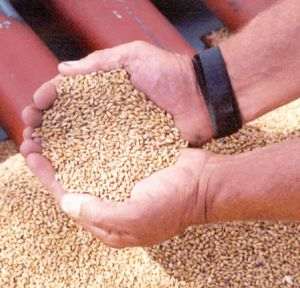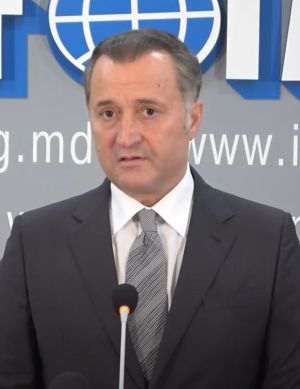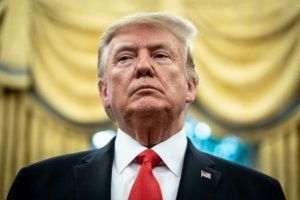Ursula von der Leyen: "We cannot let Russia win"
George Marinescu
English Section / 29 februarie 2024

Photo source: twitter/ Ursula von der Leyen
French President Emmanuel Macron's statement on Monday that the European Union must strengthen its defense - especially in the face of challenges from the Russian Federation - regardless of the outcome of the US presidential elections this year, was reinforced yesterday by the speech given in the European Parliament by Ursula von der Leyen - the president of the European Commission, regarding the strengthening of European defense in the current volatile geopolitical context made up of the war in Ukraine, the conflict in the Gaza Strip, attacks by the Houthi rebels, China's threats to Taiwan and North Korea's ongoing threats to Korea South.
In the speech delivered before the European deputies, Ursula von der Leyen said: "Last month the acting president of Finland, Sauli Niinistö, said: "Europe must wake up". And I would add: urgently. We all know that there is so much at stake here - our freedom and our prosperity. (...) We must start working on the future of the European security architecture, in all its dimensions and with all the necessary speed and political will. Because the truth is that we have not only been living with conflicts since 2022, but for much longer. Threats to our security, prosperity and way of life come in many forms and we all know them(...): whether it is combating political interference, reducing our dangerous addictions - a policy we have called- o risk reduction - or the elimination of hostile actors from our critical infrastructure. (...) Ultimately, it is about Europe taking responsibility for its own security. The simple truth is: we don't have the luxury of comfort. We have no control over elections or decisions in other parts of the world. And we just don't have time to sidestep the issue. With or without the support of our partners, we cannot let Russia win. And the cost of insecurity-the cost of a Russian victory-is far greater than any savings we could make now. This is why it is time for Europe to step up."
The Head of the Community Executive specified that several actions were started to strengthen the common defense and that these actions aim to strengthen the partnerships between the EU member states, but she wanted to mention that these things will not affect the relationship that the EU as a whole and the states members in particular have it with NATO.
Ursula von der Leyen showed that the member states have stepped up joint defense actions: "Last week, the Aspides naval mission was launched to protect freedom of navigation, which serves as the basis for global trade on one of the most critical waterways in world (ed. - Suez Canal-Red Sea-Indian Ocean). Member states have stepped up defense spending. Their national defense budgets have already increased by 20% compared to last year, and NATO has just announced that 18 of its members are expected to exceed the 2% of GDP defense spending target this year. We spend more jointly on joint capabilities and projects between Europeans. The European Peace Facility has mobilized euro6.1 billion to support the Ukrainian armed forces with lethal and non-lethal military equipment and supplies. The European Defense Fund invests in high-quality defense capabilities in critical areas such as naval, land, air, space-based or cyber early warning systems. We have made significant strides in increasing our industrial and defense manufacturing capabilities. In the coming weeks, we will announce award decisions under the ASAP programme, which will allow us to double European ammunition production to more than 2 million shells per year by the end of 2025."
Von der Leyen also stated that "the threat of war may not be imminent, but it is not impossible", that "the risks of war should not be exaggerated, but we should prepare for them", and in this sense there is a need of the reconstruction, restoration and modernization of the armed forces of the EU member states.
The President of the European Commission said: "This means turbocharging our industrial defense capacity in the next five years. (...) We will submit some proposals in the coming weeks with the first European industrial defense strategy. One of the central objectives of the Strategy and the European Defense Investment Program that will come with it, will be the prioritization of joint acquisitions in the field of defense. As we have done with great success with vaccines or for example with natural gas. This will help us reduce fragmentation and increase interoperability. But to do this we have to send a strong signal to the industry. (...) We will increase support for industrial acceleration, as we are now doing with ammunition through ASAP. We will identify European defense projects of common interest, (...) and focus on innovation to ensure that Europe has this advantage in new technologies, which we see being deployed around the world in various conflicts. (...) That is why I am proud to announce that we will establish an Office for Defense Innovation in Kyiv. This will bring Ukraine ever closer to Europe and allow all member states to rely on Ukraine's experience and expertise on the battlefield in industrial defense innovation."
Ursula von der Leyen specified that part of these projects will be supported with financing from the European Investment Bank and asked the banking systems in the member states to support the need for access to capital of the defense industry in Europe.
The Community Chief Executive said: "I would like to encourage our public and private lenders to support our defense industry and in particular small and medium-sized enterprises. Small and medium-sized enterprises are the backbone of our defense industry, they are the engine of innovation and a critical factor in the single market."
Von der Leyen concluded by saying that, if he receives a new mandate at the head of the European Commission, following the European parliamentary elections in June, he would like to have a European commissioner for defense in the future structure.


















































